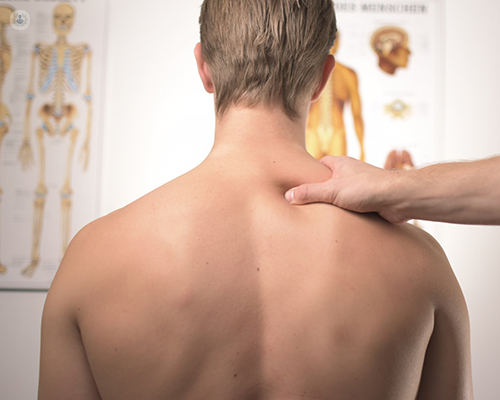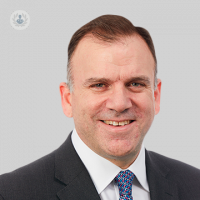What can be done for shoulder arthritis?
Written in association with:Shoulder arthritis is a chronic degenerative disorder, which results in the softening and disintegration of the cartilage of the joint. It is also accompanied by the formation of new, but abnormal, cartilage and bone at the margins of the joint (osteophytes) as well as scarring of the capsule, which surrounds the shoulder joint.

What has shoulder arthritis been described as feeling like?
As a result, the previously smooth shoulder becomes rough resulting in stiffness and pain. The pain is often described as a deep ache within the shoulder, which is initially made worse by movement and eased by rest. As the condition deteriorates, the pain may also be felt even when at rest and at night, such that sleep is affected. Locking and ‘clunking’ may be noticed by those affected and shoulder stiffness and weakness may also occur, contributing to the shoulder joint pain.
What is the most common type of shoulder arthritis?
There are several different types of shoulder arthritis, but the most common is primary osteoarthritis, which is a degenerative condition with no obvious cause. If arthritis develops as a result of another condition it is called secondary. This might occur following trauma, shoulder instability, infection and large rotator cuff tears.
How is shoulder arthritis diagnosed?
The diagnosis of shoulder arthritis is made following a history and examination, and then confirmed by x-rays that reveal irregular joint surfaces, osteophytes and possibly bone loss. Ultrasound or MRI scans can be used to clarify the quality of the surrounding musculature and if there is evidence of significant bone loss, a CT scan may also be requested.
What are the treatment options for shoulder arthritis and shoulder joint pain?
The treatment of shoulder arthritis is always tailored to the particular patient. Options may include the following:
1. Rest, activity modification, pain relief and physiotherapy can be beneficial, particularly in the early stages of the disease but the regular use non-steroidal anti-inflammatory drugs (NSAIDs) should only be used under the guidance of your General Practitioner.
2. Physiotherapy can prove beneficial in the early stages of the disease and can help maintain motion and strength. It is, however, less effective in advanced disease.
3. Corticosteroid injection treatments can occasionally have a role by improving pain however the effect is usually temporary.
4. Arthroscopic debridement; this is a keyhole surgical procedure where any loose cartilage and osteophytes can be removed and if necessary, a tight and contracted capsule can be released to allow greater movement and hopefully ease pain.
5. If the disease is too advanced, then a shoulder replacement will be necessary. This can come in many different designs. If only the humeral head (the ball) is replaced then the operation is referred to as a Hemi-arthroplasty, but if the glenoid (the socket) is also replaced, then this is referred to as a Total Shoulder Replacement. This can give good predictable outcomes but should only be undertaken when other less invasive treatments have been exhausted. The use of the sling is required for six weeks after the procedure.
If you are experiencing shoulder joint pain then do not hesitate to book an appointment with a specialist.


